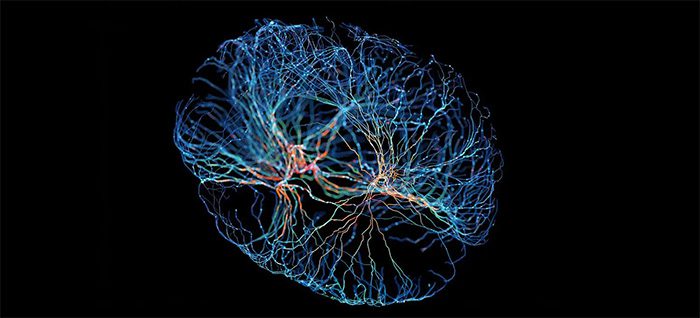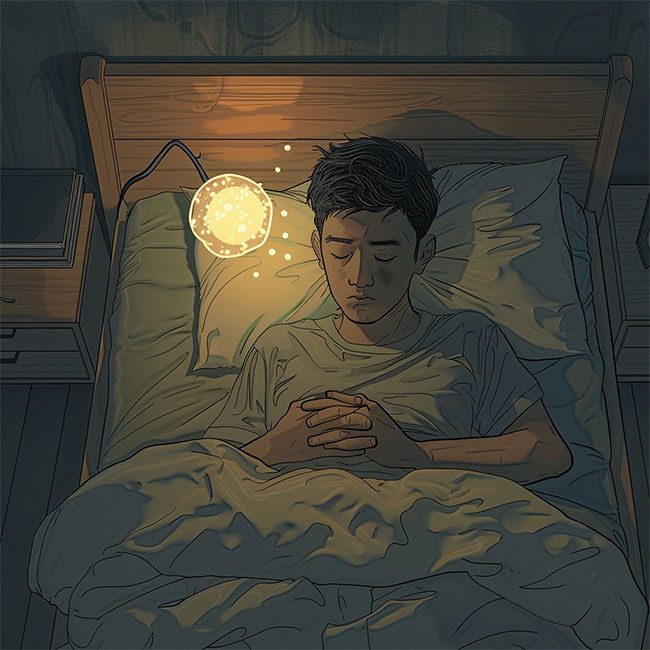According to the definition, memory is the continuous process of retaining information over time, creating a “script” upon which a person can base reasoning and actions in reality. Despite this description, memory remains shrouded in countless mysteries for us.
Some events are clearly retained by the brain, no matter how long ago they occurred, while others fade into oblivion even if they just happened yesterday. To explain this peculiar mystery, scientists have conducted a series of studies, with a report recently published in the journal Science at the end of March.
They discovered that the human brain, like that of some other mammals, possesses a selective mechanism for life experiences, assessing which information is significant enough to become long-term memory and which should dissipate into nothingness.

Illustration of the brain.
Experiments on mice showed that when the brain is alert, cells in the hippocampus light up in a pattern that scientists refer to as “sharp wave ripples”, marking the significant experiences that help the brain retain them while sleeping.
Although the research was conducted on mice, certain processing mechanisms in the brains of mammals have not changed significantly throughout evolution, so these new findings may reveal insights into how the human brain functions. This is the view of the report’s lead author, neuroscientist György Buzsáki.
In the experiment, Professor Buzsáki and his colleagues had mice navigate a maze with a sweet reward placed at the exit. Electrodes attached to the mice’s brains were used to monitor their brain signals during the “escape,” while simultaneously recording data onto a computer.
The research team observed that when the mice paused to eat, the aforementioned sharp waves appeared repeatedly in their brains, sometimes as many as 20 times. While the mice were sleeping, these waves were “replayed” in their brains: this is the process by which the brain transforms the mice’s morning experiences into long-term memories.

You can also try to actively create “brain waves marking experiences” to help the brain form long-term memories – (Illustrative image).
Thanks to sleep, the brain distinguishes which experiences are significant enough to become memories. The researchers also noted that events which do not produce these sharp wave ripples are not utilized. According to Professor Buzsáki, the marking of memorable events occurs unconsciously during the morning.
“The brain makes decisions on its own, rather than us actively doing so,” the professor stated.
However, the researchers believe that we still have our own ways to increase the chances of transforming experiences into long-term memories.
According to Buzsáki, if we take a moment to pause after an experience (similar to what the mice did in the experiment), this action can help the brain convert the event into a long-term memory. The brain requires a period of relaxation, without focusing on anything, to allow sharp waves to form.
For a practical example, Buzsáki suggests that if you binge-watch an entire season of a TV show, you will likely only remember the last episode you watched. “If you want to remember a movie you just finished watching, you should take a short walk,” the professor advised.


















































